calsfoundation@cals.org
Headquarters House Museum
aka: Tebbetts House
Located in the historic district of Fayetteville (Washington County), the Headquarters House Museum serves as the headquarters for the Washington County Historical Society. The museum offers daily house tours, walking tours of the gardens and grounds, and educational programs to teach local children about the history of Fayetteville. The Headquarters House Museum hosts the annual Heritage School during the summer months to promote awareness of past traditions and manners. It also provides numerous luncheons and receptions each year for visitors and guests.
Headquarters House was built in 1853 by Judge Jonas Tebbetts and his wife, Matilda Winlock Tebbetts. The house is one of the best examples of Greek Revival architecture still standing in Arkansas, containing fluted columns on the front porch and dentil trim on the eaves around the house and parlor fireplace. The four-acre property held numerous other buildings and an apple orchard behind the house.
Jonas March Tebbetts was born in Rochester, New Hampshire, around 1820 and was educated at the Western University of Pittsburgh, where he eventually became a professor. He left his job there and made his way out west as a teacher and steamboat worker. By 1839, he reached the Arkansas frontier, where he studied law. Tebbetts married Matilda Winlock, a Kentucky-born student attending the Fayetteville Female Seminary. In 1853, they built their home in Fayetteville. Tebbetts became a popular leader of the town, but as threat of war approached, he “made himself notorious” as a staunch Union supporter. In March 1862, he was arrested by Confederate general Ben McCulloch and detained at Fort Smith (Sebastian County), but he was released after the death of General McCulloch at the Battle of Pea Ridge. Tebbetts returned to Fayetteville, but when he was warned of a plot to kill him, he escaped behind the Union lines in Missouri. In the fall of 1862, he returned to get his wife and children. The Tebbetts family never again lived in the house, which was occupied by the Yeater family until the Union army took control of it in early 1863.
Tebbetts’s house served as headquarters to both the Union and the Confederate armies during their respective times of occupation of Fayetteville. Even though the house sustained some serious damage during the Action at Fayetteville on April 18, 1863, it was returned to its original grandeur by the numerous owners who bought the house in the years following the Civil War. Each owner stayed true to the original Greek Revival style in which the house was built. In 1967, the house was turned over to the Washington County Historical Society by Paris Green to operate as a historic house museum. The museum contains many period pieces in its exhibits, including Victorian-style furniture, a doll collection, a silver tea service that belonged to the Tebbetts family, and the museum’s famous “Hollywood desk,” on which Gregory Peck signed the Emancipation Proclamation during his role as Abraham Lincoln in the CBS television miniseries The Blue and the Gray. The name was changed to Headquarters House Museum to commemorate its service to both armies during the Civil War. The house was listed on the National Register of Historic Places on June 24, 1971.
For additional information:
Campbell, William S. One Hundred Years of Fayetteville, 1828–1928. Fayetteville, AR: Washington County Historical Society, 1977.
“Headquarters House.” National Register of Historic Places nomination form. On file at Arkansas Historic Preservation Program, Little Rock, Arkansas.
Hendricks, Nancy. “Spirits of the Past Live Again at Headquarters House.” Flashback 53 (Summer 2003): 97–125.
Mahan, Russell L. Fayetteville, Arkansas, in the Civil War 1860–1865. Bountiful, UT: Historical Byways, 2003.
The Journal of Marian Tebbetts Banes. Fayetteville, AR: Washington County Historical Society, 1977.
Washington County Historical Society. http://www.washcohistoricalsociety.org/ (accessed August 31, 2023).
Lonnie Strange
Washington County Historical Society
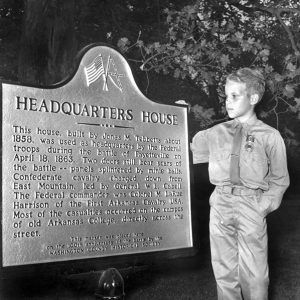 Headquarters House Commemorative Plaque
Headquarters House Commemorative Plaque 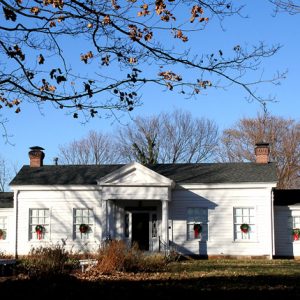 Headquarters House Museum
Headquarters House Museum 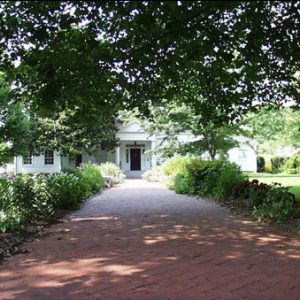 Headquarters House Museum
Headquarters House Museum 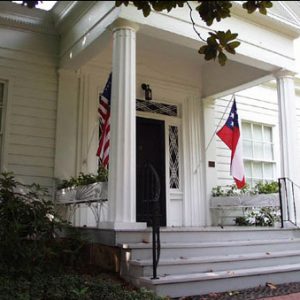 Headquarters House Museum
Headquarters House Museum 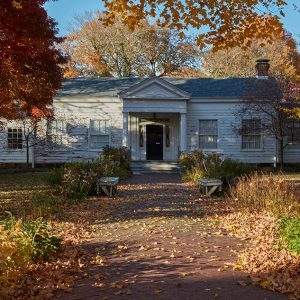 Headquarters House Museum
Headquarters House Museum  Headquarters House Dig
Headquarters House Dig 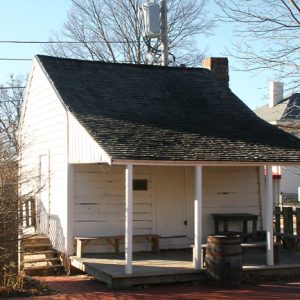 Archibald Yell Law Office
Archibald Yell Law Office 



Comments
No comments on this entry yet.